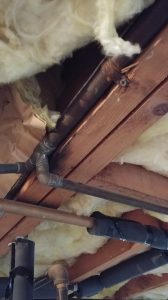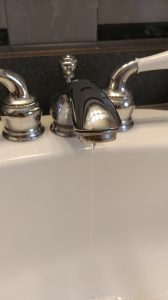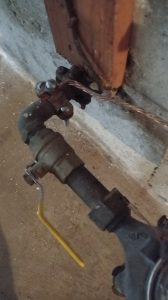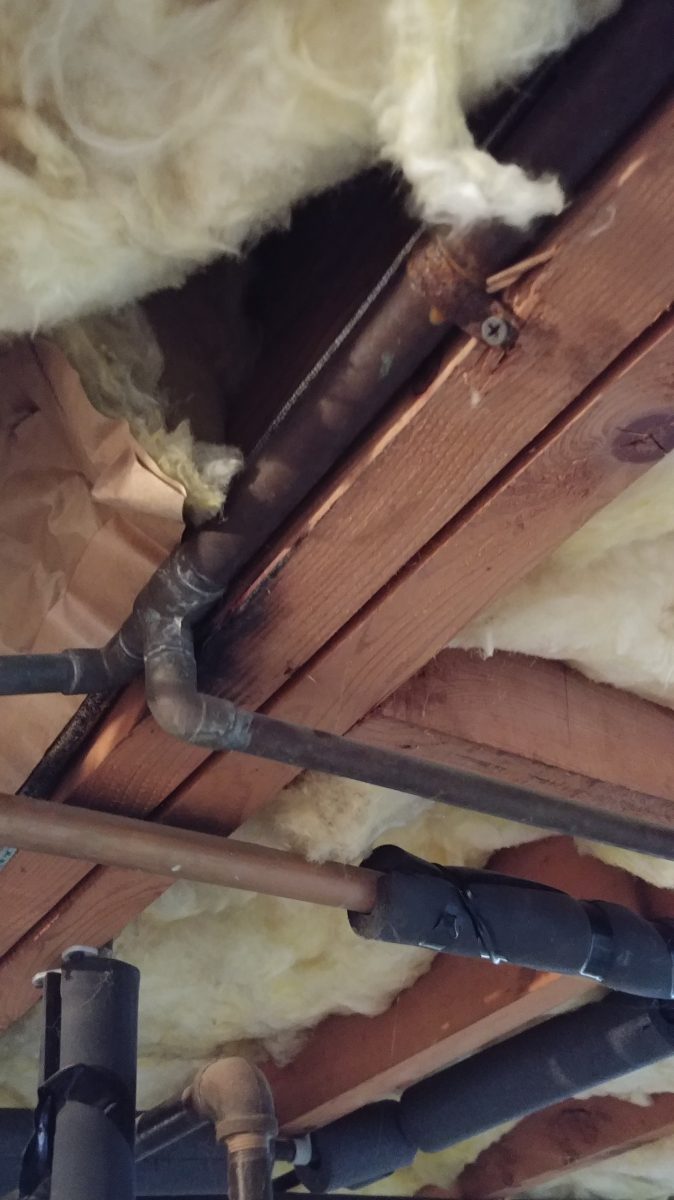WESTFIELD—The State Fire Marshal’s office wants residents to be aware of freezing pipes during these bitter cold months.
In order to make residents aware of freezing pipes, State Fire Marshal Peter J. Ostroskey has given tips for what to do to prevent pipes from freezing, as well as what to do to safely thaw pipes that have frozen. According to Ostroskey, fires actually get started due to people attempting to thaw their pipes.
“This bitter cold weather brings the risk of frozen pipes. As difficult as that situation is, it is important not to make a bad situation worse; many people cause fires trying to thaw frozen pipes,” Ostroskey said in a statement.
In order to prevent frozen pipes, Ostroskey provides a number of tips for homeowners and others in the press release.
First, let water drip from faucets when it is very cold outside. This helps prevent freezing pipes because the temperature of the water is above freezing.
 Second, it is suggested to open kitchen and bathroom cabinet doors, which will allow warmer air to circulate around the pipes. The State Fire Marshal’s Office also suggests putting household cleaners and chemicals out of reach of children when doing this.
Second, it is suggested to open kitchen and bathroom cabinet doors, which will allow warmer air to circulate around the pipes. The State Fire Marshal’s Office also suggests putting household cleaners and chemicals out of reach of children when doing this.
Third, keep your thermostats at the same temperature both day and night. While it may cost more to keep the heat higher at night, it could cost even more to repair what happens if a frozen pipe bursts.
Also, shut off outside water. And if you are going to be away, then make sure to set the thermostat in your home or business to no lower than 55 degrees.
And in order to thaw frozen pipes, Ostroskey provides a number of suggestions, as well.
First, if you notice that a faucet is at just a trickle when you turn it on, you should suspect a frozen pipe. You will want to locate the area of the pipe that is frozen, which may include pipes running against exterior walls or where water service enters a home.
As you’re treating the frozen pipe, make sure the faucet remains open. Flowing water will help to melt more ice.
For treatment of the frozen pipe, it’s suggested that you apply heat to the section of pipe. Suggestions for this include wrapping an electric heating pad or a towel soaked in hot water around the pipe or an electric hair dryer.
Also, it is suggested that residents be careful when using space heaters to heat areas near pipes. It is recommended to try not to use extension cords but if you have to make sure they are properly rated. Also, do not overload circuits in your home.
It is also suggested not to use open flame devices, including blowtorches, kerosene or propane heaters or charcoal stoves, to thaw frozen pipes. A blowtorch, as an example, can cause water within the pipe to eventually boil, which could make the pipe explode.
“All open flames in homes present a serious fire danger, as well as a severe risk of exposure to lethal carbon monoxide,” according to the statement. You should also not leave gas oven doors open due to carbon monoxide, and you should have working smoke and carbon monoxide detectors in every level of your home.
If you are applying heat, do so until full water pressure is restored. However, if you cannot thaw the pipe, or if you cannot locate the frozen area or it is inaccessible, contact a licensed plumber.








